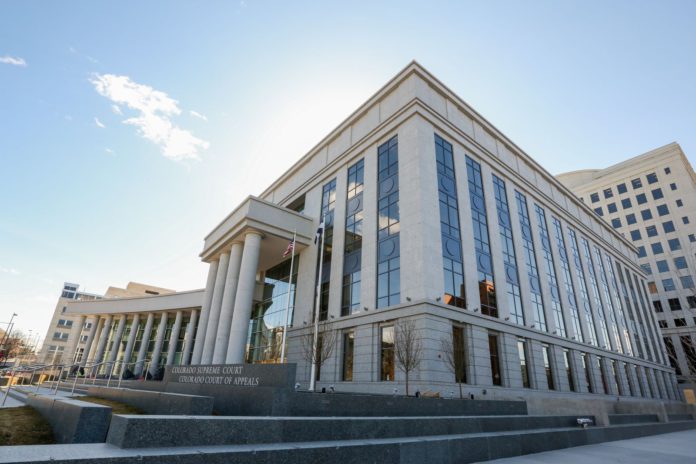
With a recent ruling on non-judicial foreclosures, 10th Circuit Court of Appeals added one more voice to the conflicting opinions from other federal circuits that may eventually have the U.S. Supreme Court weighing in.
In Obduskey v. Wells Fargo, the court ruled Jan. 19 that the Fair Debt Collection Practices Act does not apply to non-judicial foreclosure proceedings in Colorado. In the underlying case, Dennis Obduskey defaulted on a home loan serviced by Wells Fargo, which hired the law firm McCarthy and Holthus to pursue a non-judicial foreclosure. The firm sent Obduskey a letter to notify him of the proceedings. Although Obduskey responded with a letter disputing the debt, McCarthy continued with initiating the foreclosure in 2015.
Obduskey brought a number of claims against the bank, including violations of the FDCPA and the Colorado Consumer Protection Act, and commencing an unlawful collections action. The district court granted motions to dismiss the claims, ruling Wells Fargo was not liable because it began servicing the loan prior to Obduskey’s default. The district court also ruled McCarthy did not classify as a “debt collector” because “foreclosure proceedings are not a collection of a debt.”
The 10th Circuit upheld the district court’s dismissals. Although the ruling settles the question in its own jurisdiction, other courts have not come to a consensus on the case law.
The 9th Circuit and several district courts have also ruled that the FDCPA does not cover non-judicial foreclosures, while Colorado’s Supreme Court and the 4th, 5th and 6th Circuits have held that the act does.
Daniel Geyser, a partner with Stris & Maher representing Obduskey, wrote in an email to Law Week that they plan to appeal the decision to the U.S. Supreme Court.
“The decision is particularly intolerable in Colorado, where the same federal law now means different things in state and federal court,” he wrote. “That encourages the kind of unpalatable forum-shopping that the Supreme Court has studiously worked to avoid.”
Hall & Evans special counsel Tim Murphy, who is not involved in the case, said that because of the divided rulings, the U.S. Supreme Court will likely have to weigh in on the question eventually.
“It would definitely be ripe for going up to the United States Supreme Court so they can settle the 2-3 split that we’re seeing right now in the circuit courts,” he said. Should the court eventually weigh in, Murphy doesn’t believe the Supreme Court would make a ruling with application broader than to non-judicial foreclosures. Murphy said it appears the 10th Circuit placed a lot of weight on the letter sent to Obduskey by McCarthy notifying him of the foreclosure proceedings in ruling that the firm did not act as a debt collector. McCarthy did not threaten Obduskey with foreclosure as a tactic to collect his mortgage debt, and the court expressly declined to rule on whether such an action would have made McCarthy a debt collector.
“I think that’s where you have to look back at the end of the court’s ruling,” Murphy said. “When the court says if a more aggressive means was used to do this same exact thing, then we have to leave that for another day.” He added that had McCarthy employed a method such as threatening McCarthy with foreclosure to get him to pay, the case likely would have gone in Obduskey’s favor.
“Because enforcing a security interest is not an attempt to collect money from the debtor, and the consumer has no ‘obligation . . . to pay money,’” states the 10th Circuit’s opinion, “Non-judicial foreclosure is not covered under the FDCPA. We have previously seemed to endorse such a view, and now endorse it fully.”
Obduskey argued the 6th Circuit’s decision in Glazer v. Chase supported his position. That court ruled the FDCPA covers non-judicial foreclosures because the “ultimate purpose of a foreclosure action is the payment of money,” and “every mortgage foreclosure, judicial or otherwise, is undertaken for the very purpose of obtaining payment on the underlying debt, either by persuasion … or compulsion.”
But the 10th Circuit disagreed, pointing out that judicial and non-judicial foreclosures are different because, in a non-judicial proceeding, “the sale does not preserve to the trustee the right to collect any deficiency in the loan amount personally against the mortgagor.”
The Colorado Supreme Court currently has on its hands a different case involving the definition of “debt” in Ybarra v. Greenberg & Sada. In that case, for which oral arguments took place early in December, the court has to decide whether an insurance subrogation claim against a person is a debt under the Colorado Debt Collection Practices Act. Although it involves state law and Obduskey v. Wells Fargo deals with a federal statute, Murphy said he believes the two cases are not totally unrelated.
He said a ruling in favor of Greenberg & Sada would be a nod to limiting the definition of a debt.
“Even if you’re arguing under the federal Fair Debt Collection Practices Act, under Colorado law, [the Colorado Supreme Court doesn’t] believe the subrogation of a tort would be considered a debt under the CFDCPA or the FDCPA,” he said. “It will be interesting to see what the Colorado Supreme Court holds in that case, in terms of whether they’re going to expand or contract what constitutes a debt under the FDCPA.”
— Julia Cardi

